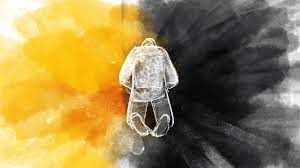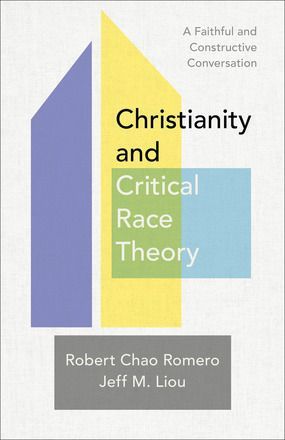Some Revelation Questions
Picking up some questions from our Q & A on Revelation 19

For this first blog post, I want to go back to a conversation we had in May. As part of our series through Mark, we ran into Jesus’ response to the Sadducees’ question about marriage and eternity in Mark 12. It seemed like an appropriate time to get into Revelation (ha! As you may know, I don’t need a reason to get into Revelation…).
So, our sermon for May 8 was Revelation 19:6-9, a celebration for the Wedding Feast of the Lamb. The big picture that I was trying to communicate is that we were made for Jesus—to love him, to become like him, and to have intimate union with him. Jesus wants us! So much that he gave up his place at God’s right hand in order to suffer that we might have life.
In Mark 12, Jesus tells the Sadducees that there will be a resurrection from the dead and that human marriage will not be a part of it. Revelation fills in the rest of the picture: human marriage does not exist after the resurrection because humanity will be married to Jesus! The fulfillment of marriage is the wedding that unites God and humanity, heaven and earth, Creator with creation. Human marriage anticipates that ultimate marriage but it doesn’t complete it. It’s a picture that helps us to participate but does not fulfill humanity, our faith in Jesus, or the ways that we were made. We will be most complete in our marriage to Christ.
There are a bunch of implications to this regarding marriage, singleness, and eternal life. Jesus undermines our focus on marriage—marriage is not eternal nor the only way to live our calling in this life. Singleness is also important in the Kingdom. And, singleness oriented to Jesus may participate more fully in the wedding feast of the Lamb than marriage does. Finally, the church in eternity will be a fully suitable partner for Jesus, our bridegroom. We will be everything that God made us to be, in and through God’s Spirit.
We had some great questions in the Q&A time, and I want to share some of those questions and answers with you; they are below. I’d love to have more conversation about some of these questions with you, and I may commission some friends to respond to some of these ideas on the blog. We’ll see what this blog becomes. In the meantime, may the Lord bless you!
Group Questions:
- Who is “he” in verse 9 [Revelation 19:9]?
This is a textual question, which several translations (NIV, NET, NRSV, WEB) try to answer for us, suggesting that "he" is an angel. The Greek text is not actually clear. I said in the live Q&A that it was an angel--that was based on the fact that I was reading from the NIV. Several translations (NASB, ASV, KJV) are more accurate with the Greek in this verse and just say "he". But context does suggest pretty strongly that "he" is an angel (or some other being that's not God but a being that a human might worship) because John tries to worship him and he says don't worship me (see the next verse, 19:10).
- How is it possible that the people of God sounded like many waters, thunder, and a crowd all in one? -Lucy Lingle
Great question, Lucy! We talked about this one, so I won't go into too much detail. I think the point that John is trying to make is this: the people of God are taking on characteristics of properly worshiping people (the crowd image), Jesus ("many waters" is language used to describe Jesus' voice earlier in Revelation, see 1:15 for example), and God (thunder is usually pointing us to God in Revelation). So, when we are most fully ourselves, living out our fullness as God made us, we will be fully human but bear the image of God to those around us. I'm so excited to live this way!
- So, how does our marriage relate to or inform our faith? Is marriage holy? How?
Marriage is holy in the sense that it anticipates the final destiny of humanity. It is a signpost that points us to ways that God loves us in Jesus. And, of course, every single marriage falls short of the reality of God's love for us. A couple of idealized ways that marriage might act as a signpost: spouses experience deep intimacy in a context of committed relationship, married couples remain committed through difficult situations, married couples start to take on characteristics of each other through time. Also, married people will still experience loneliness. Last thing: as with singleness, marriages might be more or less oriented toward Jesus.
- If human marriages anticipate our heavenly marriage to Jesus, what does singleness anticipate?
At the live discussion, I changed the language here from what singleness "anticipates" to the language of "participation". In my mind, marriage anticipates the wedding feast; but singles who orient their lives toward Jesus are actually participating in the wedding feast, ahead of the event. Like the Church when we receive Jesus' life and promise again in communion, singles who are Jesus-oriented bring his future promises into the present. They are living as though married to him already.
I wanted to bring that conversation back up again because I don't want to idealize singleness or singles, and at the same time I don't want to dismiss or relegate singleness to a status lesser than marriage. Singleness is an important status in Scripture and in church history, and singles might live out their experiences in ways that make intimacy with Jesus near to us.
- How does one practice that type of intimacy with others in this life while maintaining healthy boundaries?
Practicing intimacy with one another makes us vulnerable and open to abuse. And yet, we were made for intimacy with God and one key way we experience joy and love now is through intimacy with others. How do we live in the middle of that tension? It’s a really great question, to which I have only less-than-satisfying answers. The short answer I gave in the live Q&A was not really satisfying to me (or others, I think), and I would love to think more about this with you all in community.
But here’s a start: Jesus did not start with boundaries or self-protection but love. In love, he poured himself out for our sakes. Now, he was able to pour himself in ways that we tend not to be able to, with a sense of self and identity, along with confidence in his origin, purpose, and end. As John 13 tells us, “knowing that the Father had given everything into his hands, and that he had come from God, and that he was going back to God” (John 13:3), Jesus washed his disciples’ feet. In its proper place, love is a function of an identity rooted and grounded in God. And healthy intimacy begins with that kind of love.
So, if you want intimacy, start with self-giving love. And then offer freedom to others (which is really just a part of self-giving love). Intimacy isn’t really possible when it’s demanded or the result of manipulation or control. And yet, so much of what we call and think of as “love” or “intimacy” is mixed up with our attempts to manipulate others to meet our own needs and desires. Jesus’ coming is the result of thousands of years of God allowing freedom to humanity, in the interest of God lovingly inviting us to choose intimacy with him. When we continued to reject God’s invitations, God sent his Son to win us over, not through manipulation but by freely giving up himself on our behalf. God never forces us to choose him; intimacy does not force itself on us.
And that’s where boundaries are necessary: we need some ability to keep our identities rooted in God’s love for us while navigating the mixed-motive world of human relationships. My dearest loves are tainted with self-interest and I’m constantly tempted toward manipulating even those that I love best. That’s true of basically all of us. We need some kind of boundary to be able to say to others that their manipulations and abuses are not welcome. I hope to build my boundaries on an identity rooted in God’s love for me, so that my boundaries can serve others and not just protect me. I think of Jesus in disputes with the religious leaders: he was sure of his identity, he argued without rejecting others’ humanity, he kept to his purpose, he did what he needed to do for what we might call “self-care”, and he was willing to give himself up all the way to death in pursuit of intimacy with us. I don’t recommend that for everyone, by the way, largely because many of us who might be willing to give ourselves up to death for others would be doing so as a kind of manipulation (“they’ll have to love me now…”) or self-rejection (“I’m not worthy of love anyway, so I should just take whatever abuse they give”). That was not Jesus’ way; he sought intimacy as a way of demonstrating who he was in love.
Last note, and then I’d love any feedback. One of the lessons of Revelation is that we will not achieve perfect intimacy before the great wedding feast of the Lamb. I am too broken and I am trying to love broken people. The hope, as I see it, is that we might pursue intimacy now as a way of preparing us to be people who have growing capacity for intimacy then. The best intimacy we experience now is only a shadow of the glorious intimacy we will have with God and others then. So, in some ways, God designs our deepest relationships to build in us a longing for what will be complete and magnificent with him when he sets all things right.
Thoughts?
Rapid Fire Questions:
Here are some other questions we didn’t have time for.
- Do we continue to become more like Jesus when we're already at the wedding feast or are we all we're going to be at that point?
I don’t know. I suspect, based on Scripture and intuition, that we will continue to grow and mature and grow to deepen and integrate our love for Jesus in new ways, so that we become more like him. But that’s a guess.
- It's hard to reconcile Jesus as both the bridegroom AND sibling or co-heir. How do we reconcile that so we can understand the church as the bride of Christ?
Yes, the imagery works in funny ways sometimes, eh? The way I reconcile it all is by thinking of them both as metaphors that obscure as much as they reveal. All language is like that, I’m afraid, except the Word himself. As metaphors, both the bridegroom image and the sibling image point us to deeper realities that we can’t express in much better ways. I believe that they will resolve in beautiful and meaningful ways at the wedding feast, but I don’t have clear language for resolving it all yet.
- In the verse we read Matt 22:14 about the wedding banquet guests: “For many are called, but few are chosen." Who is it that is called and who are chosen?
I think the context of the parable suggests that the God is calling everyone. Everyone! In the immediate context, that refers to Jews and Gentiles, religious leaders and any old person (including good and evil!), important and unimportant. Everyone is called. I think Jesus is deliberately understating the number of those called—it’s not literally “many” but everybody. Most who are not chosen choose out; they didn’t even show up to the party. But others come and still get kicked out. Why? They aren’t being changed by the feast—they are refusing to wear wedding outfits (and I think we can assume that Jesus is signaling reality beyond the parable here: the “outfits” in question have actually been provided by the king, so to refuse the outfit is just an act of defiance). NT Wright says it helpfully: “God's kingdom is a kingdom in which love and justice and truth and mercy and holiness reign unhindered. They are the clothes you need to wear for the wedding. And if you refuse to put them on, you are saying you don't want to stay at the party.” (I think this is from Wright’s Matthew for Everyone but I haven’t been able to confirm.)
- What acts of the saints constitute righteousness?
First, see the Wright quote in the above answer. The good deeds, or acts, of the saints that constitute righteousness are Kingdom acts—deeds of “love and justice and truth and mercy and holiness”. And then, I’d add that in the context of Revelation 19, the “acts of the saints” are good deeds that look like Jesus—acts of faithfulness to God in the middle of trial and persecution, acts of self-giving love, acts of worship that bear witness to what God is really like. May God clothe us all with such fine linen!
Blessings!
Josh










